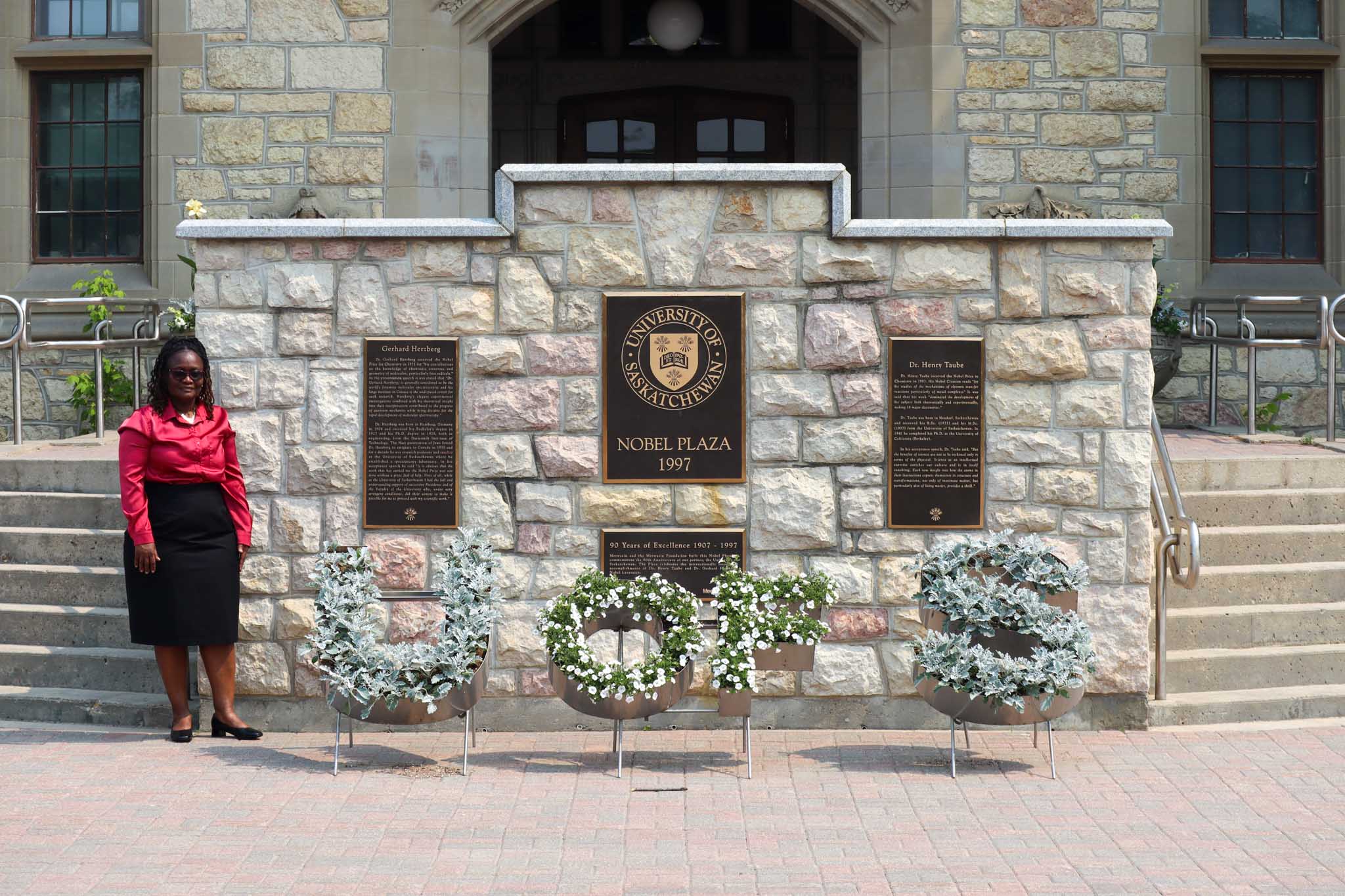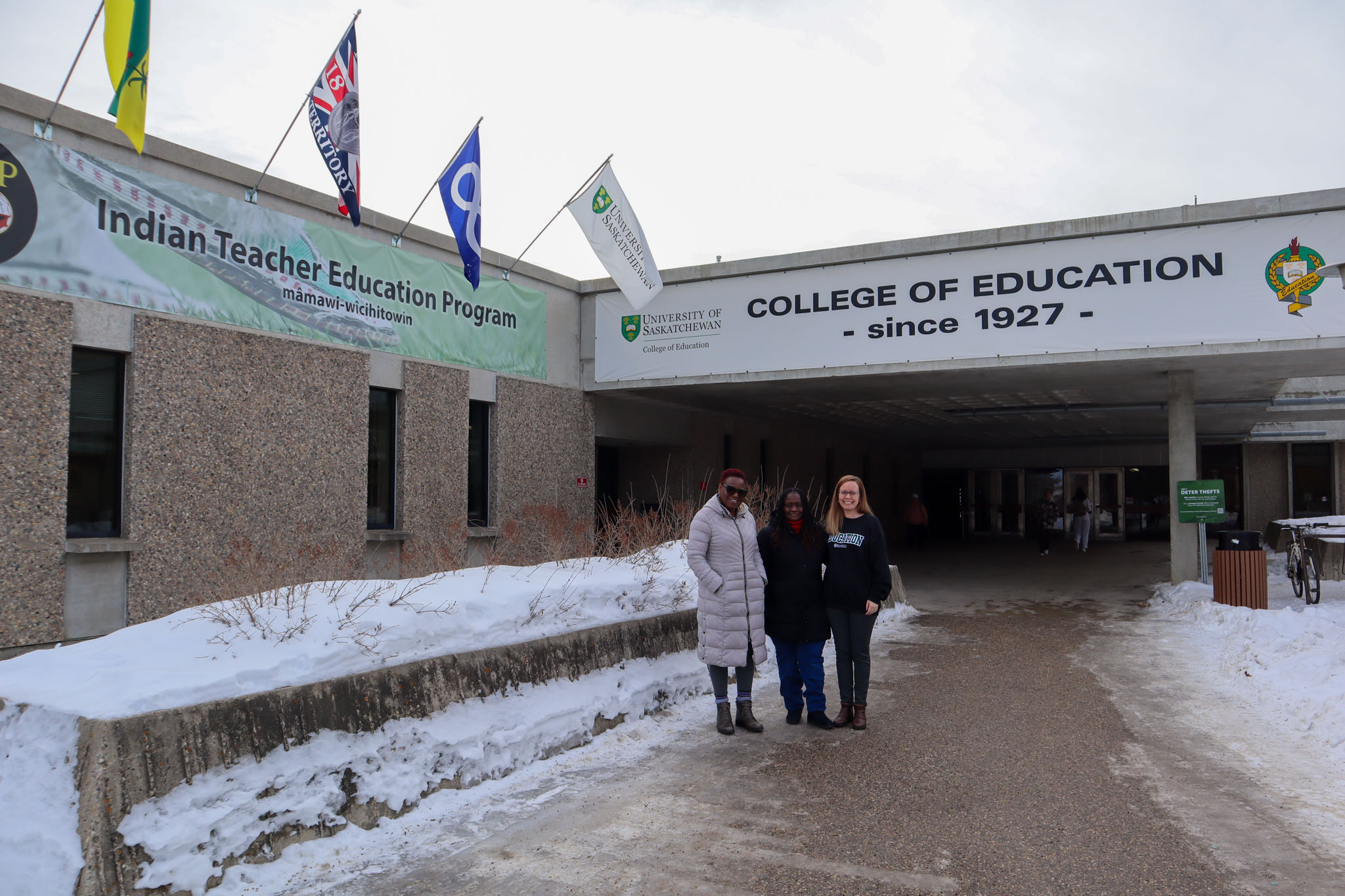
USask College of Education collaborates with Kenyan educators to transform discipline practices
A memorandum of understanding (MOU) has fostered a co-operative academic and scholarly relationship between the University of Saskatchewan (USask) College of Education and Kenyatta University (KU) in Kenya.
By Connor JayThe MOU, signed in 2023, aligns with USask’s The International Blueprint for Action 2025 strategic plan. Dr. Janet Okoko (PhD), an associate professor in the USask Department of Educational Administration, connected to KU through the Academics Without Borders (AWB) Project. Okoko travelled to KU to collaborate with faculty on a strategic plan and professional development workshops focused on practitioner-oriented research.
“The goal of the AWB project was to support capacity building in applied research among faculty and graduate students at KU,” said Okoko. “One tangible outcome was the drafting of formal collaboration agreements between USask and KU. This was the basis for other collaboration in teaching and research.”
The five-year MOU (2023-2028) included several outcomes: KU including USask as a partner in its United Nations Educational, Scientific and Cultural Organization (UNESCO) chair application; an action research project collaboration aimed at building capacity for practitioner-oriented and technology-mediated research among school leaders, funded by the USASK Global Innovation Fund; and the opportunity for KU graduate students and scholars to visit USask.
“The purpose,” Okoko said, “is to respond to the questions: What context-specific, practitioner-oriented and technology-mediated research skills do faculty, students and school leaders need to enhance quality education for sustainable development (ESD)? And how can practitioners be equipped with the essential research skills needed that supports ESD?”
Among the visiting scholars was Gilbert Kipkoech (January 2023 – June 2023), followed by Sr. Lilian Akinyi Oyula, FSJ, in 2024, and most recently, Beatrice Oyoo, who completed her residency in June. Dr. Martin Ogola (PhD) and Dr. Murikae Njihia (PhD) also presented to the College of Education community in November 2024.
Oyoo, a former math and physics secondary teacher, now serves as vice-principal at a private K-12 school in Kenya. She sought to expand her knowledge and skill set to better support students and educators.
“I was appointed vice-principal, and one of the responsibilities is discipline management,” said Oyoo. “I handle cases of indiscipline and help teachers who are struggling with learner behaviours.”
Her research focuses on strengthening student discipline programs while fostering a positive, equitable environment that supports academic success and holistic growth.
“Kenya banned corporal punishment in 2001, but teachers are still struggling to adjust,” she said. “I was wondering whether there could be better approaches to discipline management other than using punitive methods like corporal punishment, suspension or expulsion.”
After her application was accepted, Oyoo arrived in Saskatoon in January 2025. She was academically prepared, but nothing could ready her for the drastic temperature change.
“I came here in the middle of winter and I didn't know whether I would survive,” she said. “I was coming from temperatures between 20ºC to 30ºC. And when I came here, it was –30ºC. It was not easy, but one thing that stood out for me was the warmth of the people.”
Thanks to early hospitality from colleagues, Oyoo quickly immersed herself in the environment. She visited schools in Saskatoon and across Saskatchewan, comparing urban and rural settings. A five-day tour of Ottawa, funded by the Study in Canada grant, deepened her understanding of Canadian democracy, colonialism and reconciliation.
“The Ottawa tour was quite significant. The trip changed my whole perspective about Canada,” she said.
Okoko praised the research work Oyoo had completed before coming to USask.
“It has been easy to work with Beatrice because she is a self-driven, experienced school leader,” said Okoko. “She was clear about what she needed to learn from her experience in Canada and Saskatchewan about student discipline and behaviour management.
“Her demeanour, confidence and leadership experience made it easy for us to come up with a clear and meaningful plan for her visit.”
Oyoo leaves with valuable insights and research findings to share with colleagues in Kenya.
“I'll share findings about restorative approaches used to manage learner behaviour in Canada,” she said. “I'll see if we can collaborate with other people and come up with programs that can inform people about other approaches that have been used successfully in countries like Canada, the United States and Finland to see whether we can transform the education system in Kenya.”
Okoko and the Department of Educational Administration are enthusiastic about the partnership with KU thus far and are looking forward to the next set of visiting scholars.
“All the three visiting students have been easy to work with because of the academic exposure and support they already have from their home institution,” said Okoko.
As the partnership reaches its midway point, opportunities for shared research and knowledge exchange continue to shape the experiences of students and educators in both Kenya and Canada.

Together, we will undertake the research the world needs. We invite you to join by supporting critical research at USask.
Article re-posted on .
View original article.

